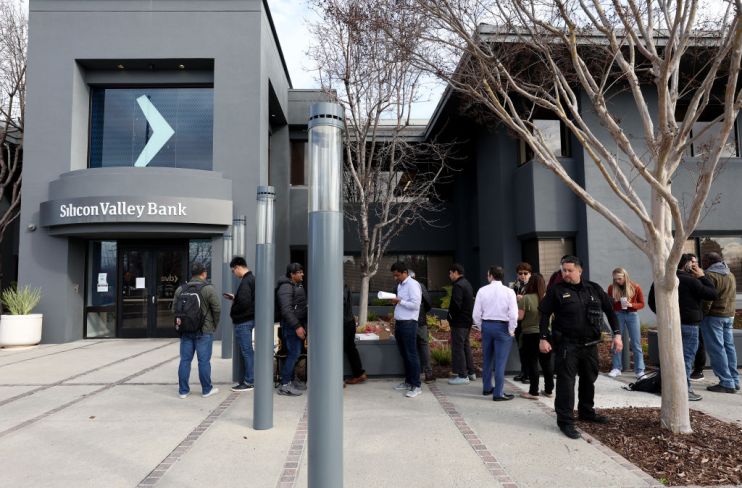FTSE 100 close: London index claws back Silicon Valley Bank induced losses as HSBC soars

London’s FTSE 100 surged today, arresting the sharp declines notched yesterday as it was caught up in a global market sell off driven by investors’ fretting over the impact of Silicon Valley Bank (SVB) collapsing.
The capital’s premier index gained 1.17 per cent to close at 7,637.12 points, while the domestically-focused mid-cap FTSE 250 index, which is more aligned with the health of the UK economy, advanced more than one per cent to drag itself back above the 19,000 points mark.
Steep stock price falls seen at the beginning of the week were put to bed today as traders trimmed their fears over how bad the fallout from SVB’s failure could be.
The premier index shed more than two per cent yesterday, while Europe’s top indexes all closed deeply in the red.
“There was a sense some calm had been restored to markets after a bruising few sessions,” Russ Mould, investment director at broker AJ Bell, said.
Banking stocks partially reversed their losses today, with HSBC, who stepped in to buy SVB’s UK arm for £1 yesterday, up more than one per cent.
Barlcays climbed nearly four per cent, while Lloyds Bank, Britain’s largest mortgage lender, added around two per cent.
Just eight shares on the FTSE 100 finished in the red today, a far cry from the steep falls clocked on Monday.
FTSE 100 pared back Monday’s losses today

Silicon Valley Bank collapsed last week after a series of bets on global interest rates staying lower soured as a result of the US Federal Reserve raising borrowing costs sharply to tame inflation.
There is growing concern that regional US lenders – who are key cogs in oiling the world’s largest economy – could rein in lending over fears of being unable to withstand bank runs due to lower capital levels.
Credit rating agency Moodys today downgraded its outlook on the entire American banking sector after the fiasco.
The Fed stepped in to protect Silicon Valley Bank customer deposits last week and President Joe Biden told Americans not to worry about the US banking system.
Traders have pared back their expectations of Fed chair Jerome Powell and co raising rates again on 22 March, betting the central bank will want to avoid sparking further financial market instability at the expense of tackling inflation.
Yesterday, the yield on the 2-year treasury – which is highly sensitive to interest rate expectations – fell at its fastest pace since the 1980s.
Today, traders softened their bets on the Fed pausing, which sent the same yield up at the fastest pace since 2009.